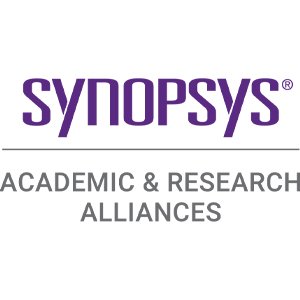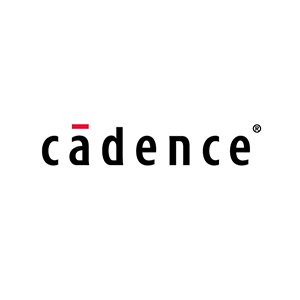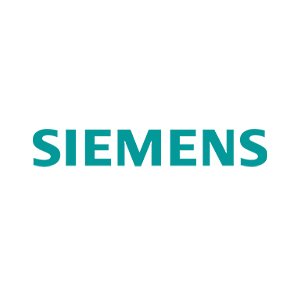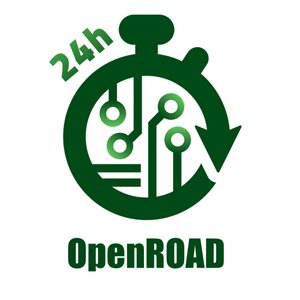Building the chips of tomorrow
This Program is Perfect For
- Hardware design and verification engineers aiming to specialize in VLSI and ASIC development
- Professionals seeking depth in either front-end logic or back-end physical design
- Working professionals and international students needing structured, flexible credentialing
- Engineers and technologists preparing to meet the growing global semiconductor workforce demand
Courses
Program Requirements
Total: 5 courses (minimum 14 quarter units)
- 3 required courses (9 quarter units)
- 2 elective courses (minimum 6 quarter units)
- End with certificate of completion review.
1. Core Course(s): (Choose Three)
- Live-Online Attend via Zoom at scheduled times.
Students may still enroll if they missed the 1st class session. However, they need to communicate with the instructor via Canvas and catch up on all missed work prior to the 2nd class meeting.
8/27/2025: Change of schedule and instructor. Please review full schedule for details.
Students may enroll until the second meeting.
This class is offered in an online synchronous format. Students are expected to log into this course via Canvas at the start time of scheduled meetings and participate via Zoom, for the duration of each scheduled class meeting.
Electronic Course Materials: You will be granted access in Canvas to your course site and course materials approximately 24 hours prior to the published start date of the course.
Required Texts: (Click on links to order)
"Advanced Verification using SystemVerilog OOP Testbench"
Note: Both books listed above are required for the course. These books are study guides that contain extensive course notes and step-by-step methodology development practices. Shipment by publisher may take 1-2 weeks.
Short descriptions of weekly homework and partial source code will be distributed in class at no additional expense to enrolled students.
The course is graded by Final Project only - homework assignments are not part of the final grade.
- Flexible Attend in person or via Zoom at scheduled times.
This class meets simultaneously in a classroom and remotely via Zoom. Students are expected to attend and participate in the course, either in-person or remotely, during the days and times that are specified on the course schedule. Students attending remotely are also strongly encouraged to have their cameras on to get the most out of the remote learning experience. Students attending the class in-person are expected to bring a laptop to each class meeting.
To see all meeting dates, click “Full Schedule” below.
You will be granted access in Canvas to your course site and course materials approximately 24 hours prior to the published start date of the course.
- Flexible Attend in person or via Zoom at scheduled times.
This class meets simultaneously in a classroom and remotely via Zoom. Students are expected to attend and participate in the course, either in-person or remotely, during the days and times that are specified on the course schedule. Students attending remotely are also strongly encouraged to have their cameras on to get the most out of the remote learning experience. Students attending the class in-person are expected to bring a laptop to each class meeting.
No meeting November 27, 2025. To see all meeting dates, click “Full Schedule” below.
Electronic Course Materials: You will be granted access in Canvas to your course site and course materials approximately 24 hours prior to the published start date of the course.
Recommended Text:
The UVM Primer: A Step-by-Step Introduction to the Universal Verification Methodology, Ray Salemi, Boston Light Press, 2013. ISBN-13: 978-0974164939
A Practical Guide to Adopting the Universal Verification Methodology (UVM), Sharon Rosenberg and Kathleen Meade, Cadence Design Systems, 2010.
ISBN: 9780578059556
- Flexible Attend in person or via Zoom at scheduled times.
This class meets simultaneously in a classroom and remotely via Zoom. Students are expected to attend and participate in the course, either in-person or remotely, during the days and times that are specified on the course schedule. Students attending remotely are also strongly encouraged to have their cameras on to get the most out of the remote learning experience. Students attending the class in-person are expected to bring a laptop to each class meeting.
No meetings on January 19 and February 16, 2026. To see all meeting dates, click "Full Schedule" below.
You will be granted access in Canvas to your course site and course materials approximately 24 hours prior to the published start date of the course.
Note: Students are required to bring laptops for coursework.
Access to a Windows, Mac, or Linux computer and the ability to install software is required.
2. Electives: Front-End
- Live-Online Attend via Zoom at scheduled times.
This class is offered in an online synchronous format. Students are expected to log into this course via Canvas at the start time of scheduled meetings and participate via Zoom, for the duration of each scheduled class meeting.
To see all meeting dates, click “Full Schedule” below.
You will be granted access in Canvas to your course site and course materials approximately 24 hours prior to the published start date of the course.
- Flexible Attend in person or via Zoom at scheduled times.
09/10/2025: Schedule change. Please review full schedule for details.
This class meets simultaneously in a classroom and remotely via Zoom. Students are expected to attend and participate in the course, either in-person or remotely, during the days and times that are specified on the course schedule. Students attending remotely are also strongly encouraged to have their cameras on to get the most out of the remote learning experience. Students attending the class in-person are expected to bring a laptop to each class meeting.
No meeting on November 27, 2025. To see all meeting dates, click "Full Schedule" below.
Electronic Course Materials: You will be granted access in Canvas to your course site and course materials approximately 24 hours prior to the published start date of the course.
Required Tool: Verilog Simulator, and Synthesis tools.
Please see Modules in Canvas on how to access the tools.
- Flexible Attend in person or via Zoom at scheduled times.
This class meets simultaneously in a classroom and remotely via Zoom. Students are expected to attend and participate in the course, either in-person or remotely, during the days and times that are specified on the course schedule. Students attending remotely are also strongly encouraged to have their cameras on to get the most out of the remote learning experience. Students attending the class in-person are expected to bring a laptop to each class meeting.
To see all meeting dates, click “Full Schedule” below.
Electronic Course Materials: You will be granted access in Canvas to your course site and course materials approximately 24 hours prior to the published start date of the course.
- Flexible Attend in person or via Zoom at scheduled times.
This class meets simultaneously in a classroom and remotely via Zoom. Students are expected to attend and participate in the course, either in-person or remotely, during the days and times that are specified on the course schedule. Students attending remotely are also strongly encouraged to have their cameras on to get the most out of the remote learning experience. Students attending the class in-person are expected to bring a laptop to each class meeting.
No meeting on February 18, 2026. To see all meeting dates, click "Full Schedule" below.
You will be granted access in Canvas to your course site and course materials approximately 24 hours prior to the published start date of the course.
Note: Students are required to bring laptops for coursework.
Access to a Windows, Mac, or Linux computer and the ability to install software is required.
Required Textbook:
Computer Architecture: A Quantitative Approach, 6th ed. by John L. Hennessy, David A. Patterson, 2017. ISBN-13: 978-0128119051
- Flexible Attend in person or via Zoom at scheduled times.
This class meets simultaneously in a classroom and remotely via Zoom. Students are expected to attend and participate in the course, either in-person or remotely, during the days and times that are specified on the course schedule. Students attending remotely are also strongly encouraged to have their cameras on to get the most out of the remote learning experience. Students attending the class in-person are expected to bring a laptop to each class meeting.
To see all meeting dates, click "Full Schedule" below.
You will be granted access in Canvas to your course site and course materials approximately 24 hours prior to the published start date of the course.
Recommended Texts:
The Design of CMOS Radio-Frequency Integrated Circuits; Thomas H. Lee; Cambridge University Press, 2004. ISBN: 9780521835398
Electronic Communication; Robert L. Shrader; McGraw-Hill Science, 1991.
The ARRL Handbook for Radio Amateurs 2000; American Radio Relay League; ARRL, 1999. ISBN: 9780872591837
3. Electives: Back-End
- Flexible Attend in person or via Zoom at scheduled times.
This class meets simultaneously in a classroom and remotely via Zoom. Students are expected to attend and participate in the course, either in-person or remotely, during the days and times that are specified on the course schedule. Students attending remotely are also strongly encouraged to have their cameras on to get the most out of the remote learning experience.
To see all meeting dates, click "Full Schedule" below.
You will be granted access in Canvas to your course site and course materials approximately 24 hours prior to the published start date of the course.
Recommended Text(s):
3D IC Stacking Technology; Wu, Kumar and Ramaswami; McGraw Hill Professional, 2011. ISBN: 9780071741965
- Live-Online Attend via Zoom at scheduled times.
This class is offered in an online synchronous format. Students are expected to log into this course via Canvas at the start time of scheduled meetings and participate via Zoom, for the duration of each scheduled class meeting.
To see all meeting dates, click "Full Schedule" below.
You will be granted access in Canvas to your course site and course materials approximately 24 hours prior to the published start date of the course.
Recommended Texts
Advanced Signal Integrity for High-Speed Digital Designs, Hall and Heck, John Wiley & Sons, 2011. ISBN: 9781118210680
Principles of Power Integrity for PDN Design - Simplified, Smith and Bogatin, Prentice Hall, 2017. ISBN: 9780132735629
- Flexible Attend in person or via Zoom at scheduled times.
This class meets simultaneously in a classroom and remotely via Zoom. Students are expected to attend and participate in the course, either in-person or remotely, during the days and times that are specified on the course schedule. Students attending remotely are also strongly encouraged to have their cameras on to get the most out of the remote learning experience. Students attending the class in-person are expected to bring a laptop to each class meeting.
To see all meeting dates, click “Full Schedule” below.
Electronic Course Materials: You will be granted access in Canvas to your course site and course materials approximately 24 hours prior to the published start date of the course.
- Flexible Attend in person or via Zoom at scheduled times.
Students may still enroll if they missed the 1st class session. However, they need to communicate with the instructor via Canvas and catch up on all missed work prior to the 2nd class meeting.
This class meets simultaneously in a classroom and remotely via Zoom. Students are expected to attend and participate in the course, either in-person or remotely, during the days and times that are specified on the course schedule. Students attending remotely are also strongly encouraged to have their cameras on to get the most out of the remote learning experience. Students attending the class in-person are expected to bring a laptop to each class meeting.
To see all meeting dates, click "Full Schedule" below.
Electronic Course Materials: You will be granted access in Canvas to your course site and course materials approximately 24 hours prior to the published start date of the course.
Required Text:
A Practical Approach to VLSI System on Chip (SoC) Design; Veena S. Chakravarthi; Springer Nature; 2022. ISBN: 9783031183638
- Flexible Attend in person or via Zoom at scheduled times.
This class meets simultaneously in a classroom and remotely via Zoom. Students are expected to attend and participate in the course, either in-person or remotely, during the days and times that are specified on the course schedule. Students attending remotely are also strongly encouraged to have their cameras on to get the most out of the remote learning experience.
No meeting on March 27, 2026. To see all meeting dates, click "Full Schedule" below.
You will be granted access in Canvas to your course site and course materials approximately 24 hours prior to the published start date of the course.
Recommended Text:
Physical Design Essentials: An ASIC Design Implementation Perspective, Khosrow Golshan, Springer, 2010, ISBN-10: 144194219X, ISBN-13: 978-1441942197.
SoC Physical Design: A Comprehensive Guide, Chakravarthi and Koteshwar, Springer, 2022, ISBN: 9783030981112
CMOS VLSI Design: A Circuits and Systems Perspective, Weste and Harris, Pearson, 2015, ISBN: 9789332559042
- Flexible Attend in person or via Zoom at scheduled times.
This class meets simultaneously in a classroom and remotely via Zoom. Students are expected to attend and participate in the course, either in-person or remotely, during the days and times that are specified on the course schedule. Students attending remotely are also strongly encouraged to have their cameras on to get the most out of the remote learning experience. Students attending the class in-person are expected to bring a laptop to each class meeting.
To see all meeting dates, click "Full Schedule" below.
You will be granted access in Canvas to your course site and course materials approximately 24 hours prior to the published start date of the course.
Required Text:
VHDL for Logic Synthesis, Authors: Andrew Rushton, Publisher: John Wiley & Sons, Publication Date: 2011-04-25, ISBN: 9780470688472
Recommended Texts:
The Verilog(R) Hardware Description Language, Authors: Donald Thomas, Philip Moorby, Publisher: Springer Science & Business Media, Publication Date: 2008-09-11, ISBN: 9780387853444
The Design Warrior's Guide to FPGAs, Authors: Clive Maxfield, Publisher: Elsevier, Publication Date: 2004-06-16, ISBN: 9780080477138
- Flexible Attend in person or via Zoom at scheduled times.
This class meets simultaneously in a classroom and remotely via Zoom. Students are expected to attend and participate in the course, either in-person or remotely, during the days and times that are specified on the course schedule. Students attending remotely are also strongly encouraged to have their cameras on to get the most out of the remote learning experience. Students attending the class in-person are expected to bring a laptop to each class meeting.
No meeting November 27, 2025. One "no meeting" TBA. To see all meeting dates, click “Full Schedule” below.
Electronic Course Materials: You will be granted access in Canvas to your course site and course materials approximately 24 hours prior to the published start date of the course.
Required Text:
Static Timing Analysis for Nanometer Designs: A Practical Approach, Bhasker and Chadha, Springer, 2009, ISBN-13: 978-0387938196.
4. Completion Review:
Please enroll in the VLSI and Semiconductor Engineering Certificate Completion Fee only when all of the certificate requirements have been met and your final grades are posted.
5. Related Workshops
- Flexible Attend in person or via Zoom at scheduled times.
This course is part of the Fall 2025 Workshop series
Recommended course sequence
Requisite expertise
You need a degree in a technical field or equivalent knowledge acquired through training and experience in hardware design and development. Experience with UNIX and/or LINUX is required for lab sessions. Knowledge of a programming language such as C, Perl or Bash Shell is helpful.
Planning your coursework
Beginners should take introductory courses before advanced. Other courses can be taken based on your interests and professional levels.
Please review course descriptions—Make sure you have taken necessary prerequisites or meet the requirements through job experience or previous education before registering for a course.
Related electives
- Embedded System Hardware Architectures, Introduction (3.0)
- System Design for Low Power Management (1.0)
Substitutions | Shared credits
Some technology courses may be listed in more than one program. However, only one course may be shared between two certificate programs unless otherwise noted.
To receive your certificate

Establish Candidacy
Requisite knowledge
Technical expertise
You need a degree in a technical field or equivalent knowledge acquired through training and experience in hardware design and development. Experience with UNIX and/or LINUX is required for lab sessions. Knowledge of a programming language such as C, Perl or Bash Shell is helpful.
Please review course descriptions
Make sure you have taken necessary prerequisites or meet the requirements through job experience or previous education before registering for a course.
Grade requirements
Please note that only letter grades of C or higher may be applied to a certificate, and in some programs, students may have more stringent requirements. Students in most employer- and government-sponsored payment programs, such as workforce development, as well as international students on F-1 visas, need to maintain a B average to meet their requirements.
See Grading and Credits Policy for further information.
Instructors
Certificate Program Advisory Committee
JEFFERY GOODING, MSEE
Account Technology Executive, Cadence Design Systems
SAM HUYNH, Ph.D., MSEE
Principal Member of Technical Staff, AMD
Instructor, Silicon Chip Design & Semiconductor Engineering Certificate Program, UCSC Silicon Valley Extension
JIM SCHULTZ, B.S.
Product Marketing Manager, Digital Design Implementation, Synopsys Inc.
MANDAR MUNISHWAR, B.E.
Formal Verification Architect, Intel Data Center and AI Division
Instructor, Silicon Chip Design & Semiconductor Engineering Certificate Program, UCSC Silicon Valley Extension
JOSE RENAU, Ph.D.
Professor, Computer Science and Engineering, Jack Baskin School of Engineering, UC Santa Cruz
Consultant, Esperanto Technologies, Inc.
BENJAMIN TING, M.S.E.E.
Principal Engineer, Micron Technology
Instructor, Silicon Chip Design & Semiconductor Engineering Certificate Program, UCSC Silicon Valley Extension
ARVIND VIDYARTHI, M.S.E.E.
Senior Director, Silicon Design Implementation and Methodology, Altera (an Intel company)|
Program Chair | Instructor, Silicon Chip Design and Semiconductor Engineering










































